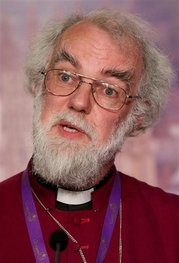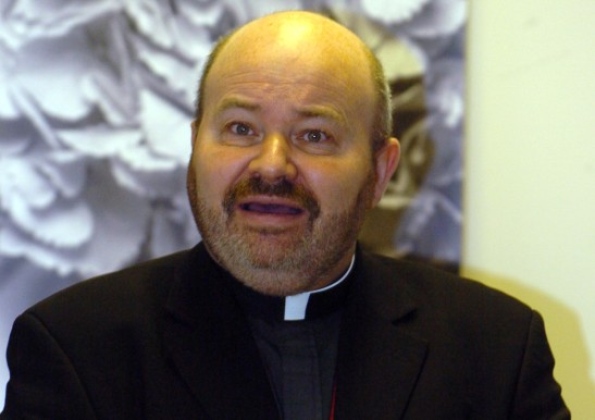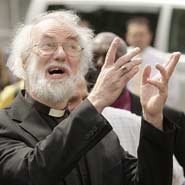What do Joseph Stalin, Mao Tse-Tung, Pol Pot and Rowan Williams have in common? They all believed – or believe in Rowan’s case – that it is possible to “re-educate” the wealthy, by compelling them to perform menial tasks.
From here:
Bankers, politicians and newspaper editors should be legally required to spend a couple of hours every year working with the poor and needy to remind them of the purpose of their power and wealth, the archbishop of Canterbury has suggested.
He made the comments on Maundy Thursday, the day of the Last Supper when Jesus washed the feet of his disciples and when the British monarch honours deserving subjects.
In his contribution to BBC Radio 4’s Thought for the Day slot, Dr Rowan Williams asked: “What about having a new law that made all cabinet members and leaders of political parties, editors of national papers and the hundred most successful financiers in the UK spend a couple of hours every year serving dinners in a primary school on a council estate?
“Or cleaning bathrooms in a residential home? Walking around the streets of a busy town at night as a street pastor, ready to pick up and absorb something of the chaos and human mess you’ll find there, especially among young people?”
I am all for society’s privileged few freely choosing to help those less well-off than themselves – an ideal, I admit, which I find easier to discuss than practice. To remove, as Rowan suggests, the free choice component of the activity is to remove its virtue. You cannot compel goodness – it comes from within: the best the state can do is restrain evil.
When Jesus said radically upsetting things like “But I tell you that anyone who looks at a woman lustfully has already committed adultery with her in his heart” and “You have heard that it was said to those of old, ‘You shall not murder; and whoever murders will be liable to judgment.’ But I say to you that everyone who is angry with his brother will be liable to judgment”, he did so because good and evil emanate from the human heart: being good produces good deeds, not vice-versa.
Like this:
Like Loading...




